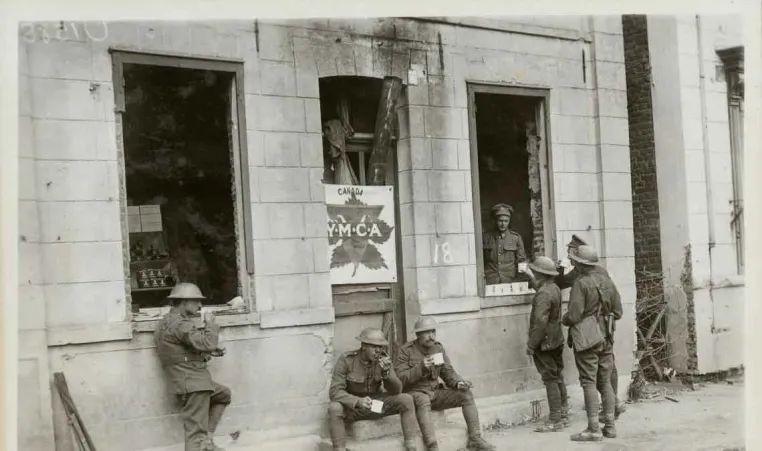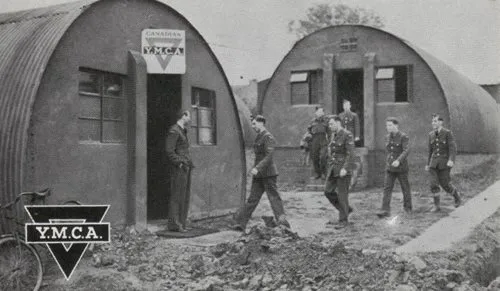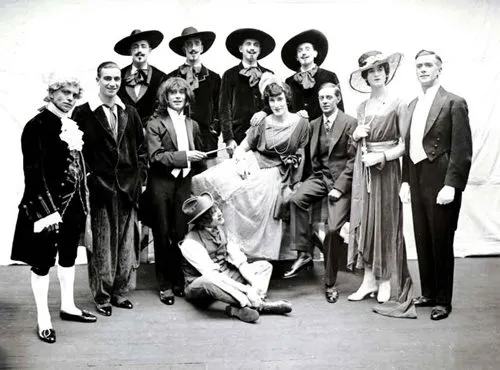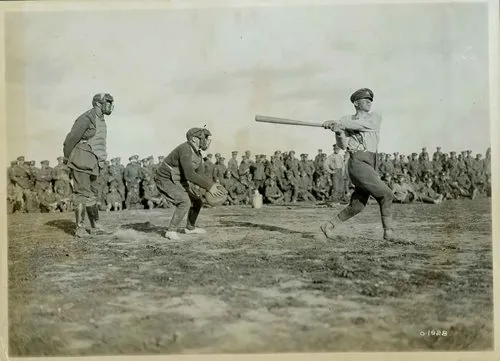
Remembrance Day is an opportunity to look back and reflect on Canadians’ incredible service during times of war. The YMCA is grateful for the many men and women who supported the YMCA War Services’ overseas efforts in both world wars; their devotion significantly improved the quality of life for our Canadian troops.
The Canadian YMCA provided support to the Canadian Forces as early as 1866. During the First and Second World Wars, the YMCA operated by its motto “Service to the Troops." Recreational, social and educational services were offered abroad to help Canadian soldiers cope and try to maintain a “Spirit, Mind and Body” balance under the extreme stress of war-time conditions.
Near the trenches, YMCA auxiliary service points were set up to give soldiers access to many necessities. Approximately 50 tea cars would navigate the front lines to distribute tea and biscuits. YMCA canteens were set up in dugouts to provide food, refreshments, stationary, and a peaceful space for soldiers to write letters home while isolated in the trenches. For soldiers who could not write due to injury, YMCA officers were there to scribe and send letters to loved ones on their behalf.

Further away from the trench system, larger YMCA huts served as lecture halls where the troops could learn about history and literature. Along with Canadian universities, the YMCA established Khaki College in London, a school for Canadian troops seeking educational opportunities. All levels of training were offered ranging from lessons in reading and writing to classes in science and law. Khaki College helped over 50,000 Canadians prepare for their transition to civilian life after the war.

Social activities were also organized by YMCA officers. Many huts housed concerts and performances organized by the YMCA’s Dramatic School. The numerous shows during WWI lead to the formation of the Dumbells Singing Troupe; a performance group which went on to have success on Broadway post-war. Soldiers were also given the opportunity to attend discussion and shared interest groups as well as counselling sessions. Wounded soldiers that were relocated to hospitals received visits from YMCA officials who boosted their morale and offered guidance.

Among some of the more popular services were the athletic programs. The YMCA, along with the army and Salvation Army, coordinated sporting events that drew large crowds. Programs included baseball, track and field, boxing, tug-of-war competitions and horse shows. These sports and physical activities cultivated camaraderie and helped soldiers stay healthy and active during their service.
By 1943, nearly 70 million soldiers had participated in programs delivered by the Canadian YMCA War Services. We would like to thank all YMCA officers who instilled hope, built confidence and delivered the comforts of home to Canadian Forces overseas, and all those who fought for our country.
This article first appeared on the YMCA of Greater Toronto blog. Photos sources form CMCC, Canadian War Museum and Library and Archives Canada